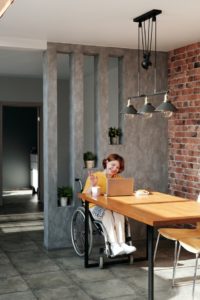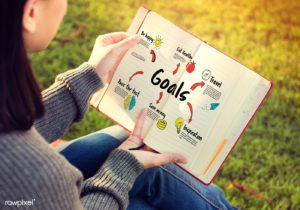I’ve been thrust into thinking about the darker side of social connection lately, primed to do so by our current political rhetoric: things like the baseless claim that Haitian migrants are eating pets, that transgender people have been all out banned from the military, and vitriolic language toward undocumented people, marking them as dangerous and inhuman (‘No, they’re not humans, they’re not humans. They’re animals” according to Trump; In fact, a report found, the more undocumented immigrants in your community, the safer it tends to be).
These examples represent dehumanization, which occurs when we don’t see a group of people as fully human. In fact, one study found that the part of our brains associated with disgust is triggered when we’re exposed to people we’ve dehumanized.
We know we’ve dehumanized a group when:
- We see the group as a monolith
- We perceive that monolith as threatening and dangerous
- We are callous toward members of that group, even willing to commit or endorse the commitment of harm toward them. As Vox reporter Brian Resnick put it, “Dehumanization is a mental loophole that lets us harm other people.”
Dehumanization brings out the worst in us. When we see a group as a monolith, if one person in that group steps out of line, we see their entire group—perhaps millions—as a threat. Police officers who dehumanized Black kids were more likely to preferentially use force against them (doing things like wrist locks, punching with a closed fist, or striking with a blunt object) over kids of other races. Another study found that the more people dehumanized Muslims, the more likely they were to support policies like tapping the phones of all Muslims, denying them visas, and banning Islamic headdresses.
But dehumanization is also dangerous for the people who perpetrate it. Groups who feel dehumanized, one study found, are more likely to support violent actions toward their dehumanizers. As one of the study’s authors, Emile Bruneau put it, “If we use rhetoric and enact policies that make Muslims feel dehumanized, this may lead them to support exactly the types of aggression that reinforce the perception that they are ‘less civilized’ than ‘us.’ In this way, dehumanization can become self-fulfilling in the minds of the dehumanizers, and justify their aggression.”
What helps against dehumanization? Among a variety of factors, friendship. Having quality interactions with people from the group you’re dehumanizing leads you to dehumanize them less than 6 months later, one study found. Another study found that simply imagining a good interaction with a member of a dehumanized group can decrease how much you dehumanize them.
Many have spoken about losing hope in our contentious political climate. I hope you know that making friends, particularly with people who are different from you, is a tiny act of hope and humanization. It means something and it matters.
And I’m here to help you do that. Y’all—I never offer workshops, but seeing this surge in dehumanizing rhetoric and hostility cordoned off to certain groups, I feel compelled. For the next three months, I’ll be hosting a series of workshops to help you become more secure and make friends. ALL proceeds from each of these workshops will be donated to groups under threat of dehumanization, including Black Lives Matter, Palestinian Children’s Relief Fund, and The Trans LifeLine.
Workshop Dates and Tickets
How to Become a More Securely Attached Friend | Wednesday, March 26th 8:00-9:30 PM EST
Attachment styles are notoriously hard to change but change is possible. In this workshop, you’ll learn why attachment styles are so persistent and an innovative science-backed technique to change yours. You’ll leave with an exercise to practice at home to continue to work toward security.
If you’ve been to therapy, done meditation, and tried to make secure friends, but have still struggled with insecure attachment, this workshop is for you.
All proceeds are being donated to Black Lives Matter.
How to Make Friends Part 1 | Wednesday April 30th 8:00-9:30 PM EST
Many of us think that friendship happens organically, yet it doesn’t. In this workshop, you’ll learn the science of what makes friendship happen and leave with practical science-backed strategies you can use to make friends.
All proceeds are being donated to the Palestinian Children’s Relief Fund.
How to Make Friends Part 2 | Wednesday May 28th 8:00-9:30 PM EST
Initiating new friendships often feels scary but this workshop will make it far less scary. For example, you’ll learn about studies that find that strangers are open to talking to you ninety percent of the time. You’ll learn scripts and tricks to initiate new conversations and find the community you’ve always wanted.
All proceeds are being donated to the Trans Lifeline.



